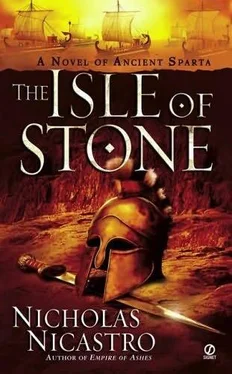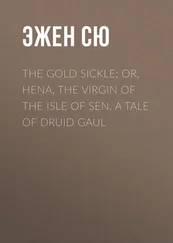Nicholas Nicastro - The Isle of Stone
Здесь есть возможность читать онлайн «Nicholas Nicastro - The Isle of Stone» весь текст электронной книги совершенно бесплатно (целиком полную версию без сокращений). В некоторых случаях можно слушать аудио, скачать через торрент в формате fb2 и присутствует краткое содержание. Жанр: Исторические приключения, на английском языке. Описание произведения, (предисловие) а так же отзывы посетителей доступны на портале библиотеки ЛибКат.
- Название:The Isle of Stone
- Автор:
- Жанр:
- Год:неизвестен
- ISBN:нет данных
- Рейтинг книги:4 / 5. Голосов: 1
-
Избранное:Добавить в избранное
- Отзывы:
-
Ваша оценка:
- 80
- 1
- 2
- 3
- 4
- 5
The Isle of Stone: краткое содержание, описание и аннотация
Предлагаем к чтению аннотацию, описание, краткое содержание или предисловие (зависит от того, что написал сам автор книги «The Isle of Stone»). Если вы не нашли необходимую информацию о книге — напишите в комментариях, мы постараемся отыскать её.
The Isle of Stone — читать онлайн бесплатно полную книгу (весь текст) целиком
Ниже представлен текст книги, разбитый по страницам. Система сохранения места последней прочитанной страницы, позволяет с удобством читать онлайн бесплатно книгу «The Isle of Stone», без необходимости каждый раз заново искать на чём Вы остановились. Поставьте закладку, и сможете в любой момент перейти на страницу, на которой закончили чтение.
Интервал:
Закладка:
She still said nothing as he washed and dressed the road blisters on his feet. Playing the proud Spartan patriarch, he would not deign to engage in domestic chatter, but would wait for the occasion to measure out his words. He got his chance when Melitta ran into the house, and upon discovering her father sitting there, froze in her tracks. Antalcidas, grinning without reservation, raised a hand to summon the girl to him. Panic flashed on his daughter’s face as she backed away and fled.
It was not an unusual response of a Spartan girl to her father. “She looks well,” Antalcidas said at the top of Andreia’s bowed head. “But where, may I ask, is our son?”
With a sharp upward glance, Andreia met his eyes. All at once, his seigneurial pretentions crumbled; he parted his lips to say something, but his voice died under the blaze of her look. She rose, and after dropping the cleaning rag into the basin, retreated without explanation up the stairs to the women’s quarters.
Thus began the long process by which Antalcidas learned the fate of little Molobrus. She never said outright that his son lay with the jackals on the mountain; she let the story out in pieces, by means of frowns and significant silences, until even a proud Spartan patriarch could guess the truth. When he took to going around the house with a stricken look on his face, she said her first words to him since his return:
“And so the father is last to know the fruit of his sins.”
Antalcidas thought about this statement for a full day, his brow furrowed, until he attempted a defense the next morning.
“Why do you blame me, instead of the judges who condemned him, or the ephors who stripped us of our dignity?”
Andreia gave nothing but a bitter grimace as she took a clean rag to Melitta’s face. The girl, for her part, blamed her mother’s unhappiness on the arrival of this presumptuous stranger. The weight of a trembler’s disgrace, the gossip, and the loss of privileges, were calculated to fall on his child too, so that he was obliged to explain to her why her father was the lowest sort of man. He came to accept he would never know his daughter, and that in fact she was just waiting for him to disappear. Her cheek screamed the question when he touched it, and her hair, and her eyes: why are you still here?
He tried with Andreia again that evening, when she stood at the hearth, stirring the stew pot.
“So this is the homecoming you think worthy of me?”
This was more than Andreia could take. She threw the spoon at him, scalding his cheek with the boiling sauce on its bowl. He touched the burn with this fingers, a look of childlike hurt in his eyes.
“Tell me what I have done to you, woman-except my duty to you?”
“I only wish I had the courage to throw a knife!” she cried, and with eyes welling over, fled upstairs again. Though a wife’s quarters were beneath a Spartan warrior’s dignity to enter, Antalcidas followed. When he topped the steps, he found Andreia collapsed on her day couch, face buried in her hands. As he approached to sit by her, she spoke from behind her fingers.
“Even now you can’t grieve for him.”
He thought about this. He was saddened by the news at first, but it passed; he had, after all, never met the boy. Nor was it rare for infants to die in Laconia.
“A fine figure of a man I would be, to shed tears like you.”
“Weep for your name, then, which is as dead as you should be now.”
He pulled her hands from her face, and said in a voice he usually reserved for correcting subordinates in the field, “You know I had nothing to do with it.”
“This was your city,” she replied, “yet you let this happen.”
“Did you hear what I said?”
“None of that is important. It is what people think.”
He sat trying to reason with Andreia for hours, and again the next day, and the day after that, though nothing, not even the surrender on the island, made him feel less a man than the number of words he wasted to convince her. With every day, he could see the crust of her indifference thickening. At last he took the husband’s prerogative with her, fighting his way through her stiff limbs. With his eyes, he made the only promise he could, to replace what was taken. Yet with every act of entering her, searching for her center, her could feel her receding ahead, into the darkness.
“I can’t. Not in this place-or with you,” she told him.
She never flung the ultimate accusation, trembler, but the word seemed poised to follow, like the inevitable conclusion to a syllogism.
He got up, but before he left he paused.
“Then the true coward is you,” he said.
10
Three years later, the Spartan army stood on a plain near the Peloponnesian city of Mantinea, facing an allied army of Argives, Arcadians, Mantineans, and Athenians. A battle was going to be fought because the treaty ending the war with Athens had been a sham: in the ensuing years, neither side had fulfilled its obligations. The Athenians were firmly entrenched at Pylos, and the Lacedaemonians still occupied the Athenian ally of Amphipolis. All the Greek powers sent out secret emissaries to negotiate defensive alliances against their adversaries, frightening each other with vague fears of Spartan-Athenian hegemony, an Argive-Corinthian plot to take control of the Peloponnese, or a Spartan-Theban dagger pointed at the heart of Athens. Each party insisted on terms that would make it finally, completely secure-until the hard bargaining pushed the negotiations to collapse and the diplomats went off to try their luck with the other side. This, in turn, magnified the fears of everyone else, who redoubled their own underhanded dealings.
In Sparta, the capitulators of Sphacteria remained in disgrace. The 120 Spartiates were still forbidden to attend their dining clubs, hold public office, or engage in any financial business; the 171 under-thirties faced permanent status as landless Inferiors. Yet, even as the people shunned them, there was a general fear that the survivors might abandon the Spartan cause. The army was by now undermanned and overstretched, having fewer than a third of the eight thousand troops it had in the time of Leonidas. To forestall their loss, all the ex-Equals were given new panoplies, free from the state, by magistrates who would barely look at them. Rumors were allowed to circulate that the capitulators might be pardoned after all-if they showed themselves worthy on the battlefield.
Antalcidas stood in the ranks of the Inferiors with his state-granted shield and spear. It was the first time since his return from Athens that he had left Laconia. His old Spartiate comrades would barely have recognized him: he had lost his lean, hungry look, his face having filled out in a sudden lapse into middle age; his beard, which fell now to his navel, was prematurely white. In his shame, forbidden to wear the crimson of Lacedaemonians in good standing, he wore gray to the occasion of his death.
The Spartans had been late to realize their enemies were on their way. As the battle would occur on Mantinean soil, the natives took pride of place on their right wing, with the Arcadians, Argives, and Athenians stretching out to their left. Guided by their training, the Lacedaemonians formed their lines rapidly, with the Sciritan Nigh-dwellers facing the Mantineans, the ranks of Inferiors-including Antalcidas-against the Arcadians, and almost all the surviving Spartiates filling out the line opposite Argives and Athenians. The Eurypontid king Agis, who occupied the center with his three hundred knights, would fight with very heavy burden that day: to win the field, or find the Lacedaemonian army broken in his hands. Sparta herself, unwalled and unguarded, lay only two days’ march away.
Читать дальшеИнтервал:
Закладка:
Похожие книги на «The Isle of Stone»
Представляем Вашему вниманию похожие книги на «The Isle of Stone» списком для выбора. Мы отобрали схожую по названию и смыслу литературу в надежде предоставить читателям больше вариантов отыскать новые, интересные, ещё непрочитанные произведения.
Обсуждение, отзывы о книге «The Isle of Stone» и просто собственные мнения читателей. Оставьте ваши комментарии, напишите, что Вы думаете о произведении, его смысле или главных героях. Укажите что конкретно понравилось, а что нет, и почему Вы так считаете.










![Nicholas Timmins - The Five Giants [New Edition] - A Biography of the Welfare State](/books/701739/nicholas-timmins-the-five-giants-new-edition-a-thumb.webp)

